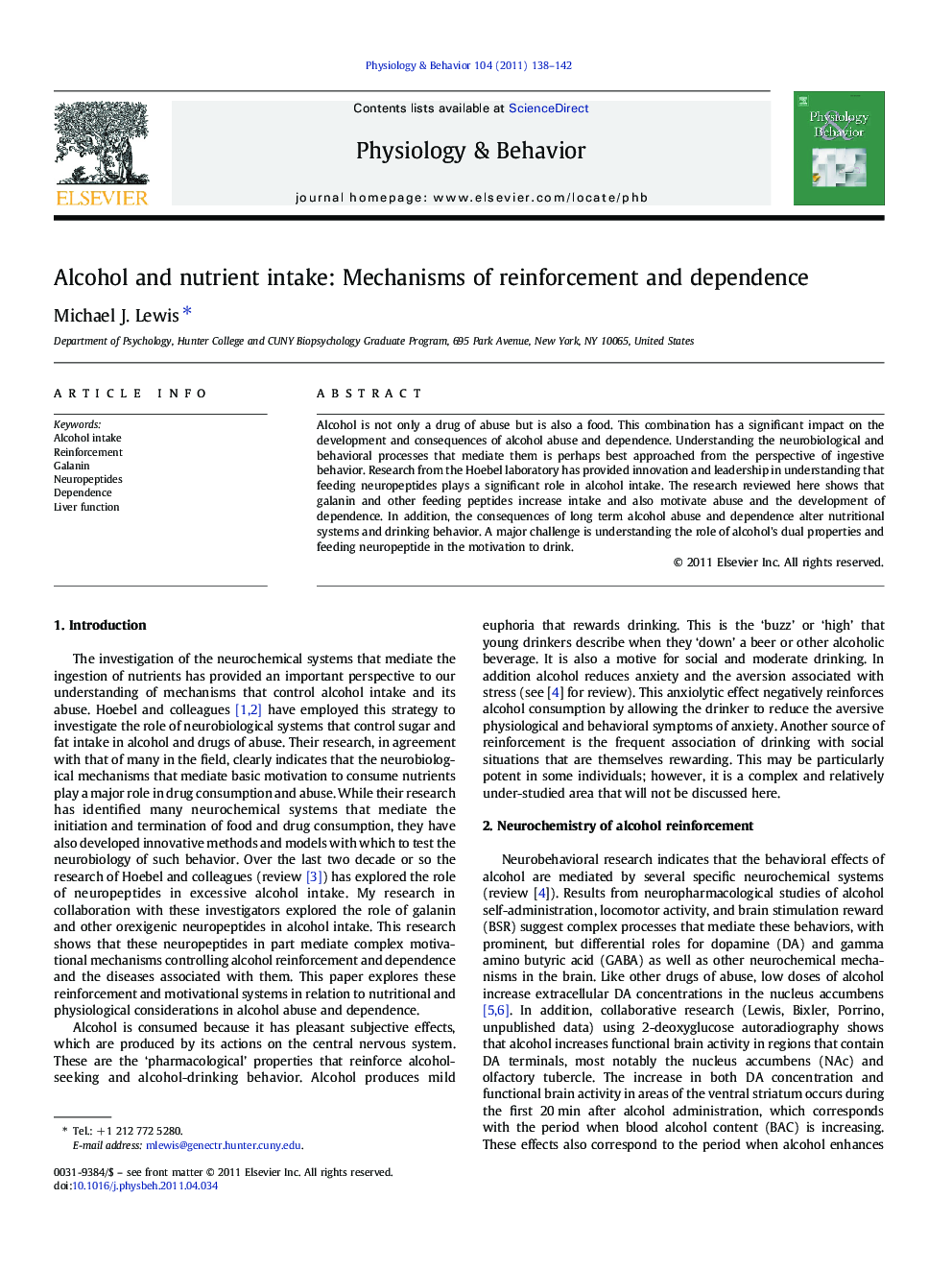| Article ID | Journal | Published Year | Pages | File Type |
|---|---|---|---|---|
| 2844590 | Physiology & Behavior | 2011 | 5 Pages |
Alcohol is not only a drug of abuse but is also a food. This combination has a significant impact on the development and consequences of alcohol abuse and dependence. Understanding the neurobiological and behavioral processes that mediate them is perhaps best approached from the perspective of ingestive behavior. Research from the Hoebel laboratory has provided innovation and leadership in understanding that feeding neuropeptides plays a significant role in alcohol intake. The research reviewed here shows that galanin and other feeding peptides increase intake and also motivate abuse and the development of dependence. In addition, the consequences of long term alcohol abuse and dependence alter nutritional systems and drinking behavior. A major challenge is understanding the role of alcohol's dual properties and feeding neuropeptide in the motivation to drink.
► Review of the research on the neurobiological mechanisms that control alcohol intake. ► The role of galanin and other feeding neuropeptides in alcohol intake. ► The role of liver and other organs in alcohol reinforcement and dependence.
